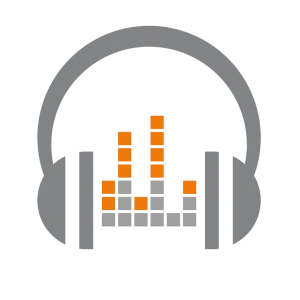08 August 2017
Game development: Finding great audio for your game
 When it comes to making a game, whether it be for mobile, desktop, or console, we know how important art is, but for many people (in particular those with a limited budget), audio tends to take a back seat and many developers turn to the Internet to hunt for free sounds.
When it comes to making a game, whether it be for mobile, desktop, or console, we know how important art is, but for many people (in particular those with a limited budget), audio tends to take a back seat and many developers turn to the Internet to hunt for free sounds.
Here are a few tips for making your game audio better:
Audio types
Games typically need several different types of audio, including:
Sound effects — These are the most familiar: a “ding” when you pick up a coin or a “boom” when something explodes. These tend to be small, short sounds.
Background music — These larger tracks set the mood for your game and they can build up excitement or provide a calming emotion for the game. These are among the most essential audio assets in any game.
UI effects — Quality sounds for your UI (user interface) frequently get overlooked, but adding a subtle “click” sound to a button press can provide just enough feedback to the user that it’s working.
Voice-overs — These are generally sounds that augment the visuals, for instance a voice reading out “eleven o’clock” to help a child tell time in an educational game.
Ambience — These are frequently forgotten, but they can include the sound of traffic in a city scene or song birds in a forest scene. Ambient sounds can be played randomly or whenever it makes sense.
Look for consistency
If you get your sounds from multiple audio sources (or sites), you may end up with a mix of sounds that don’t really fit well together. Your coin sound may be louder than your jump sound, or your menu background music may be heavy on guitar while your game soundtrack is filled with piano notes. This might make your beautiful art and exquisite game design look amateur.
What’s the solution? One is to look for audio from the same artist. Generally speaking, audio artists tend to use similar volume levels and produce sound files in the same quality. That being said, it’s usually fine to get your sound effects from a different source than your music, as these can be integrated more harmoniously.
Understand licensing
As you rummage around the Internet looking for audio, you will find all kinds of different licensing requirements. Many free audio tracks (and some paid) have some form of attribution requirement. This means that you need to give credit to the sound artist. Depending on the artist, they may require that you mention their name/studio on your website or even directly within the game.
Packs vs. individual sounds
The two challenges above can often be addressed by getting sound “packs” instead of individual sounds. If you get all of your audio from one pack, it will typically be of consistent quality and have the same licensing requirements. Since the files will tend to exist in a folder, it also makes it easy to drop a small text file in that folder to keep track of the license requirements, if you intend to use the audio in multiple games over time.
Finding good packs
While Internet search queries can find a lot of good sounds, you can save time by visiting various marketplaces for game engines like Corona. For instance, you can visit sources like the Corona Marketplace where you will find dozens of audio packs to satisfy virtually any game you imagine.
Sound effects will generally work well regardless of the game engine — artists will usually pack together similar concept sounds, so if you need sounds for a sci-fi game, you can likely find a sci-fi-specific sound pack.
If you’re not seeking a specific “genre” of audio, consider packs like the Mega Game Music Collection, the Ultimate Game Music Collection, or the 8,000+ sound effects in the Pro Sound Collection.
Working with audio files
Once you have the sounds you need, it may be necessary to modify them slightly. For instance:
- Most short sounds don’t need to be sampled in 44.1 kHz 128-bit stereo if they’re going to play on a single-speaker phone. In these cases, you may need to downsample the files to be smaller, resulting in both a smaller overall app size and faster load times when the audio files are loaded into memory.
- Perhaps an explosion sound has 2 seconds of silence before it grows to its crescendo. You probably don’t want to have a delay between your visual explosion and the audio boom, so you may need to trim the clip.
There are, of course, other actions you may want to perform like volume adjustments, converting the original format to one most compatible with your engine, and more. Here are a few tools which developers find useful when working with audio:
- Adobe Audition is part of the Adobe Creative Cloud suite and it’s used for audio recording, editing, mixing, and finishing. It’s available for both Windows and macOS.
- Audacity is a free, open-source application for audio recording and editing. It’s available for Windows, macOS, and Linux.
- GarageBand is Apple’s free music production tool and it’s quite powerful. It’s available for both macOS and iOS.
Conclusion
Having good sounds that are consistent in feel, quality, and volume will help take your game to the next level. Fortunately, there are plenty of great audio packs that can last you a lifetime of app development!


Sorry, the comment form is closed at this time.